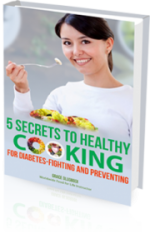Healthy Eating Guidelines
Improve Your Lifestyle, Live a Good Quality Life…
There are some helpful, healthy eating guidelines you need, to help you to successfully live a healthy, good quality life and keep your diet healthy.
Dive into more information on each guideline to help you understand better and incorporate them easily.
Here are some of the most important healthy eating guidelines and diet tips to help you while developing healthy eating habits…
Eating a healthy breakfast is very important and provides a lot of energy you’ll need for the day.
 If you are trying to lose weight, you can learn to eat healthy while losing weight at the same time. There will be no point in losing weight but not getting enough nutrients from your foods. It can have a detrimental effect on your health. Weight loss smoothies can sort you out big time in terms of adopting the habit of eating even more fruits and vegetables to get more nutrients.
If you are trying to lose weight, you can learn to eat healthy while losing weight at the same time. There will be no point in losing weight but not getting enough nutrients from your foods. It can have a detrimental effect on your health. Weight loss smoothies can sort you out big time in terms of adopting the habit of eating even more fruits and vegetables to get more nutrients.
It is important to feel good and look good when you lose weight, and not fill ill, get tired easily or lack energy to take you through each day.
Also, if you are studying, it’s easy to fall back into a lifestyle of fast food lunches. Eating healthy in college or university too is important for you to keep up a healthy lifestyle. During the busiest periods, you can end up spending quite a good chunk of your time in college per day.
There are some eating healthy quizzes too online that are useful in keeping healthy eating guidelines at the back of your head. Quizzes are great as they help you to think about answers and seriously envisage scenarios, and find solutions to problems or situations that might occur.Eating out healthy too is easily achievable, as long you don’t make a lifestyle out of it. Eating healthy does not mean you can never eat out.
Keep your foods low in saturated fat, and when you shop for food, ensure you read the labels to find out how much saturated fats, and trans fats or hydrogenated oil they contain; if any.
• If there’s less than 1g of saturated fat per 100g; that is a little saturated fat.
• If there’s less than 3g of fat in total per 100g, that is a little fat.
• If there’s more than 5g of saturated fat per 100g, that is heap loads of saturated fat.
• If there’s more than 20g of total fat per 100g, that is heap loads of fat.
• Always try to only buy foods that have a maximum of 10% fat in total. Food labels can be highly misleading though (on purpose), so it’s worth learning how to understand and interpret them correctly.
Another point I must mention in giving you some healthy eating guidelines is the benefits of taking fish oil, if you are not vegan. Fish oil has many health benefits that are mostly linked to brain development.
Supplements are good, as they can help to replace any deficient nutrients. It is important to note though, that supplements are supplements, not replacements. So, they don’t replace your nutrients that you get from your food.
In conclusion, while healthy eating guidelines and advice are just guiding principles and strategies, you should endeavor to take them seriously as unhealthy choices as a habit or lifestyle can lead to health problems.
The information here is for general guidance only.
Talk to your doctor before making any changes to your diet and lifestyle.



Leave a Reply